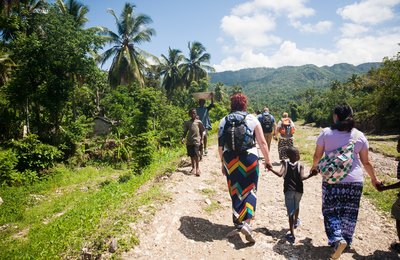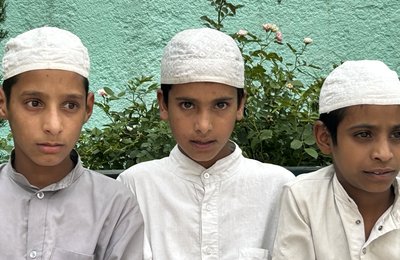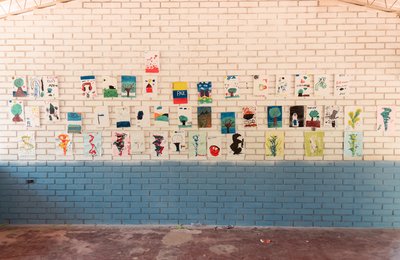 "We are the generation of peace" says a slogan at a celebration in Colombia. Image credit: Agencia Prensa Rural
"We are the generation of peace" says a slogan at a celebration in Colombia. Image credit: Agencia Prensa RuralFor the past few years, civil society had been celebrating important advances around specific topics during the peace process, but the night of 24 August was different. People were celebrating the end of the peace talks and the approval of the final agreement. While many share the opinion that a political negotiation was the best possible way to end war, after many years and thousands of victims, others see this agreement as a shameful surrender of the Colombian government to FARC.
Beyond the different perspectives, we must understand the political efforts made to gain this agreement in order to understand the responsibility we face as civil society. The leader of the government team, Humberto de La Calle, stressed how difficult it was to reach some settlements during the negotiation process. While recognising that the final outcome is far from perfect, it is the best possible agreement ever reached.
With an honest and eloquent style de la Calle claimed, “The challenges we are facing now involves us all. Further discussions, adjustments and sacrifices will come; so now we need understanding, altruism, determination and perseverance. As a community we have this responsibility”.
The ball is in our court
The role of civil society supporting this peace process starts before the plebiscite day, and includes the acceptance of arguments by those who disagree with the peace agreement. In the short time before the plebiscite, there are three major tasks civil society must undertake: 1) To know the documents related to the peace agreements; 2) To listen to and understand all the opinions around the peace agreements, even those which are against its approval; and 3) to share ideas and well structured arguments promoting peace education for all Colombian society.
1) To know all the peace agreements
Although the peace agreement text is long - almost 300 pages - reading this document carefully is an unavoidable exercise, necessary to make a responsible decision.
From the beginning, the peace process has been hit by false assumptions such as the government has agreed to pay a monthly stipend to guerrilla members and that they are not going to pay even a single day in prison for their crimes. Unfortunately even when the negotiation team has tried to refute these rumuors, social networks have been effective at spreading them as a measure to sabotage the real process.
It is important to go deep into the final text in order to avoid being a victim of misinformation. Thankfully there are many websites where information related with peace agreements has been disseminated and key messages are presented through visual and animated content, making it easy to access all the information.
2) To listen to and understand all opinions
As an exercise of tolerance, but also as a mechanism to strength the arguments favouring the “yes” choice at the plebiscite, it is important to understand all the competing points of view, and why so many people disapprove of the peace process and agreement.
Many of the reasons why some Colombians have decided to vote negatively in the referendum are related to feelings of mistrust, fear and insecurity about the future. The best way to confront those arguments is by bringing the discussion to a technical level, explaining and sharing the content of the agreements, and pushing aside all the political biases.
3) To promote peace education
Nonetheless, this process of teaching peace is also the responsibility of each individual. Using tools such as social networks and dialogue spaces, everyone can support it among friends, families and neighbourhoods. As individuals, Colombians need to ask themselves how the future could look with a “yes” majority, and what kind of scenario Colombia would face if the “no” wins. It is important to question the impact of each scenario, rather than keeping the discussion at a purely emotional level.
What now lies in our hands is not a mere opinion, but a moral decision about the future of Colombia and the need to build our future through a different perspective: one of a peaceful and reconciled society.
If we are capable as society to take our commitment to peace seriously during this period before the plebiscite, we are also capable of facing the challenges of working for sustainable peace, with real perseverance, altruism and determination.
More information about the peace process is available at the following links:
www.mesadeconversaciones.com.co








